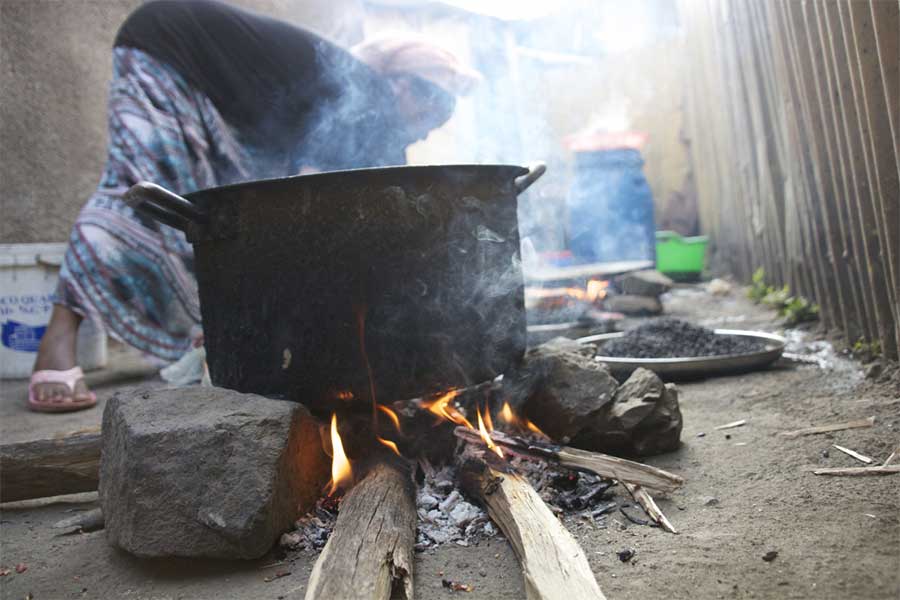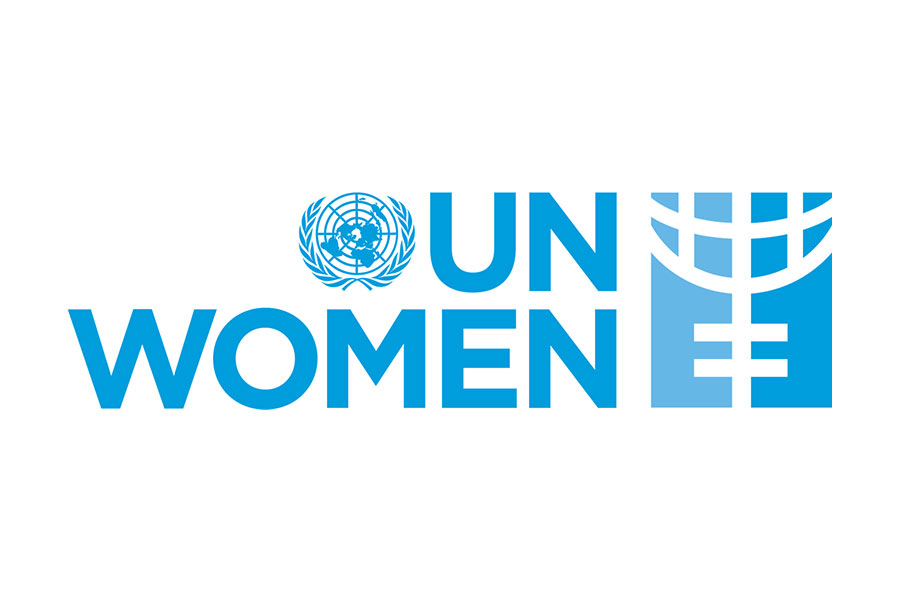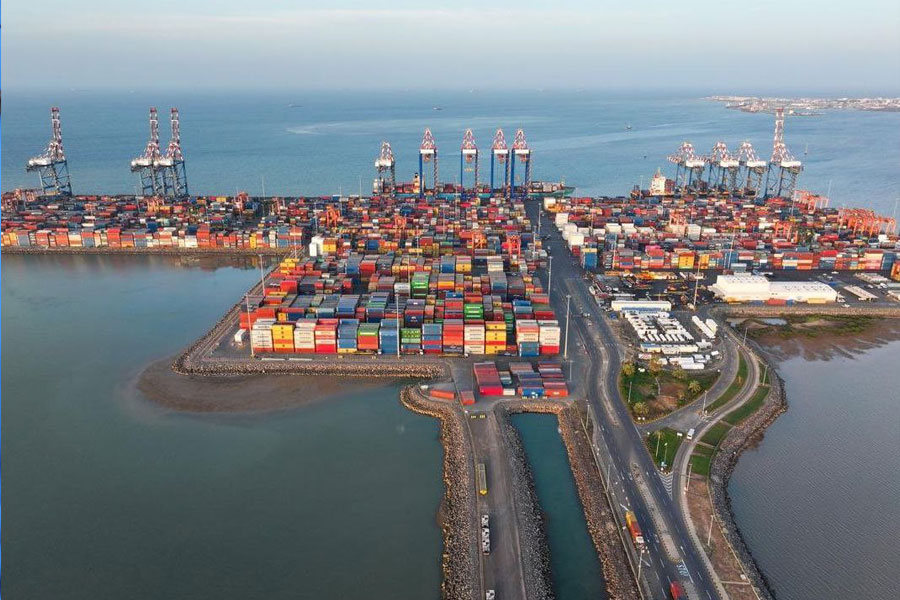
View From Arada | Feb 15,2020
May 7 , 2022
By Ellen Johnson Sirleaf , Lilian Best
Since 1911, societies around the world have dedicated days, months, and even decades (in Africa's case) to celebrating women's achievements and promoting solutions to new and persistent challenges. But over the past two years, the COVID-19 pandemic has expanded the plight of women to outsized proportions, sharply highlighting the urgency of this year's International Women's Day theme: "Break the Bias."
The onus is on us, the world's women, to fulfill this charge. Relying on our own ingenuity, we must shift our focus, refresh our global discourse, and usher in a new era for women's leadership.
There is no doubt that women have borne the brunt of the pandemic's costs. Many were forced to shelter from a silent enemy that we now know to be less lethal than their own closest kin. Many women were victims of what UN Women calls the "shadow pandemic," suffering beatings, rape, insults, and psychological trauma in what should have been a safe haven from a biological scourge.
Among the more staggering statistics from this period is one documenting the number of women who did not suffer or witness domestic violence: one in ten. You read that right: In Liberia, just one in ten survey respondents reported not witnessing sexual or gender-based violence, and only two in 10 reported not experiencing it, during the COVID-19 lockdown.
There is a clear inverse correlation between education and susceptibility to sexual and gender-based violence. Less-educated cohorts are generally more vulnerable because they tend to have low economic and political agency and scant access to health systems that could detect and address risks. These women suffer alone but together, listening to each other's cries through windows and walls.
Despite the structural disadvantages we face, women have risen to the occasion. In government, we have swiftly established unpopular but undoubtedly effective measures to curb the spread of COVID-19. New Zealand Prime Minister Jacinda Ardern is but one of the many women leaders stretching the bounds of ingenuity and determination to save lives.
From Ethiopia, Germany, and Slovakia to Denmark, Namibia, and Finland, the world's 21 women heads of state and government serving when the pandemic erupted led the charge against it with transparency and integrity, outstripping their male counterparts with effective public-health policies.
Health systems, too, benefited from women's leadership. Liberia's director-general of the General Services Agency, Mary Broh, has shown unshakeable tenacity, setting up web-based tracking tools to take stock of COVID-19 cases, treatments, vaccinations, and supplies, and running a city-wide cleanup drive in Monrovia ahead of the country's bicentennial celebrations.
Liberian women broke protocols and traditions to save lives, bridging the gaps between time-honoured systems and the needs of the moment. While others were focused solely on the pandemic, women leaders took the initiative to set up maternal centres at COVID-19 points of care, minimising infant mortality. They also enlisted religious communities' support to establish testing centres, widening the net of outbreak control points.
Throughout the pandemic, women have shattered the myth that strategies based on compassion and consensus-building are weak and ineffectual. Adaptable and sensitive to the demands of the moment, women leaders have used these qualities to build unity and support for lifesaving behaviours. Rather than being defeated by the double standards held against us, women leaders have remained humble, diligent, and collegial. But above all, they have been consistent and decisive.
Moreover, we have been learning from our experiences to assess accurately the uneven social and political terrain on which we operate so that we can approach our conditions more strategically. In addition to sharpening our awareness of the difference between a pandemic and endemic, COVID-19 and flu, we have also directed more attention to sexual and gender-based violence.
This problem has long been considered endemic – a cyclical scourge flowing from the honeymoon to the hospital. We should now treat it the same way we do a virus. That means isolating perpetrators and bringing them to justice, establishing systems to detect and address cases, and engaging with communities to stop the spread. We must devise curative and preventive measures that include men and boys so that a lasting cultural transformation occurs.
The post-pandemic road ahead is long. Navigating it demands women's perseverance and strategic acumen. We must target and reform the justice and social systems that have left women to the wolves, and we must harness the indirect, outsize force that politically and economically empowered women can bring to bear against violence. We must crowd legislatures and government offices with women, creating a critical mass that can shift the paradigm on justice, peace, security, and health.
Breaking the bias may not lead to an immediate ceasefire in domestic settings. But with more women leading at every level and in every sector, we will gradually increase our collective access to education, gainful employment, and all the other resources needed to help women escape violence.
If you are a woman reading this, we challenge you to consider pursuing a public leadership role, starting in your own community. We dare you, and we believe in you. The world is yours to win.
PUBLISHED ON
May 07,2022 [ VOL
23 , NO
1149]

View From Arada | Feb 15,2020

Life Matters | May 11,2024

Radar | Aug 01,2020

Fortune News | Oct 20,2024

Radar | Nov 26,2022

Sponsored Contents | Oct 25,2021

Viewpoints | Jun 15,2024

Fortune News | Jun 11,2024

Sunday with Eden | Jul 19,2025

Viewpoints | Jun 29,2019

Photo Gallery | 180606 Views | May 06,2019

Photo Gallery | 170800 Views | Apr 26,2019

Photo Gallery | 161882 Views | Oct 06,2021

My Opinion | 137300 Views | Aug 14,2021

Dec 22 , 2024 . By TIZITA SHEWAFERAW
Charged with transforming colossal state-owned enterprises into modern and competitiv...

Aug 18 , 2024 . By AKSAH ITALO
Although predictable Yonas Zerihun's job in the ride-hailing service is not immune to...

Jul 28 , 2024 . By TIZITA SHEWAFERAW
Unhabitual, perhaps too many, Samuel Gebreyohannes, 38, used to occasionally enjoy a couple of beers at breakfast. However, he recently swit...

Jul 13 , 2024 . By AKSAH ITALO
Investors who rely on tractors, trucks, and field vehicles for commuting, transporting commodities, and f...

Nov 1 , 2025
The National Bank of Ethiopia (NBE) issued a statement two weeks ago that appeared to...

Oct 25 , 2025
The regulatory machinery is on overdrive. In only two years, no fewer than 35 new pro...

Oct 18 , 2025
The political establishment, notably the ruling party and its top brass, has become p...

Oct 11 , 2025
Ladislas Farago, a roving Associated Press (AP) correspondent, arrived in Ethiopia in...

Nov 2 , 2025
The National Bank of Ethiopia (NBE) has scrapped the credit-growth ceiling that had s...

Nov 2 , 2025 . By SURAFEL MULUGETA
The burgeoning data mining industry is struggling with mounting concerns following th...

Nov 2 , 2025 . By YITBAREK GETACHEW
Berhan Bank has chosen a different route in its pursuit of a new headquarters, opting for a transitional building instea...

Nov 2 , 2025 . By BEZAWIT HULUAGER
Nib International Bank S.C. has found itself at the epicentre of a severe governance...